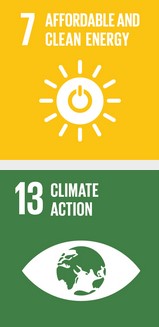Probleemstelling:
An organic Rankine cycle (ORC) system is a mature technology used to convert low-grade heat (e.g. geothermal, solar, waste heat) into electricity. However, its adoption rate into practical installations is still rather limited due to its rather low efficiency. Operating part of the cycle in the supercritical region can improve thermal efficiency and decrease heat transfer losses. This system is called a trancritical ORC system. However, in the supercritical region, several phenomena such as buoyancy and flow acceleration occur, resulting in ‘atypical’ heat transfer behavior, making the well-known single-phase heat transfer correlations such as the Gnielinski or Dittus-Boelter correlation unsuitable to design the heat exchangers in these systems. Therefore, the knowledge on this type of heat transfer, especially for larger diameter tubes, needs to be extended. For this purpose, an experimental test rig has been developed (see figure).

